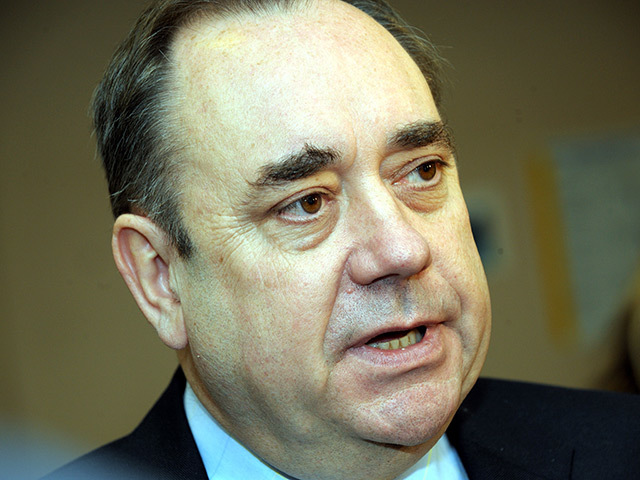
Alex Salmond warned of blackouts this winter when he was challenged to back a freeze in energy bills.
The first minister said the energy regulator Ofgem had shown him some “extremely frightening” figures highlighting a lack of supply and the danger of “exponential” prices rises.
Scottish Labour leader Johann Lamont accused him of siding with the Big Six energy companies rather than consumers faced with average energy hikes of around 9%.
She called on Mr Salmond to support UK Labour leader Ed Miliband’s controversial policy to freeze energy bills.
Ms Lamont criticised Deputy First Minister Nicola Sturgeon’s proposal to move green energy charges, partially blamed for higher bills, from the bill payer to the taxpayer.
Breaking up the UK single market through independence could lead to higher bills, with global bankers Citigroup estimating it would cost the average Scottish family an extra £225 a year, she said.
“Rather than the bill-payer or the tax-payer footing the bill, why won’t the first minister stand up to the Big Six energy companies on behalf of the people of Scotland and back a freeze?” Ms Lamont asked.
Mr Salmond said on Wednesday Ofgem showed him some figures that were “extremely frightening”.
“The regulator suggests that over the next two winters, we are facing a lack of margin of supply over demand that could result in brownouts and even in blackouts,” he said.
The first minister added as the gap between supply and demand narrows “prices will increase exponentially as people try desperately to get the last kilowatt of electricity”.
Mr Lamont said former Tory prime minister John Major, who has called for a windfall tax on the energy companies, was “more radical” than Mr Salmond who wanted to give the energy suppliers a cut in corporation tax.
Mr Salmond said Ms Lamont was confusing green energy subsidies on bills with fuel efficiency measures, which the Scottish Government and third sector organisations thought should be taken into general taxation because it would be a “more efficient, fair and equitable way to attack fuel poverty”.
“It would also result in a £70 reduction in energy bills which, by definition, seems rather better than a freeze in energy bills,” he said.
Recommended for you
